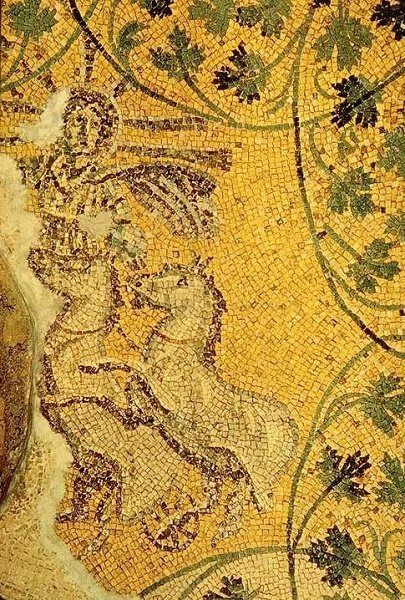Un nuevo sol (microficción a propósito de la Navidad) | A new sun (microfiction on the occasion of Christmas)
La Navidad, que hoy celebramos con entusiasmo y fervor, tiene sus orígenes históricos, que han sido investigados por los especialistas. No me corresponde a mí disertar sobre ello (pueden consultar las referencias indicadas al final). Sólo quise ficcionar brevemente sobre la relación entre el "Sol invictus" y la Navidad cristiana.
Christmas, which we celebrate today with enthusiasm and fervor, has its historical origins, which have been investigated by specialists. It is not up to me to dissert about it (you can consult the references indicated at the end). I only wanted to fictionalize briefly about the relationship between the "Sol invictus" and the Christian Christmas.

El sol, irreductible y esplendoroso, surgió nuevamente. Constantino lo celebró augustamente desde su balcón imperial. Pensó en las festividades del Sol Invictus que desde los antiguos celebraban al dios grecorromano. Era 25 de diciembre, y recordó la aparición (¿o sueño?) que tuvo con la cruz sobre el sol aquella mañana cuando debía enfrentarse a Majencio, el emperador contrincante, y lo venció, para gloria del Imperio ahora unificado.
Decretaría la aceptación de esa secta tan perseguida desde su antecesor Nerón; estaba decidido a hacerlo y declararla religión legítima. Era el fenómeno religioso más popular desde hacía cientos de años. No podía desconocerlo. Además, la cruz del Cristo que adoraban había sido la insignia de su suerte. Y rememoró lo contado del nacimiento de ese niño en un establo del Belén bajo custodia romana, que luego enseñaría el amor y el perdón del prójimo, prácticas a las que no estaba acostumbrado, pero que le atraían.
Un nuevo sol reaparecería cada 25 de diciembre.

The sun, irreducible and splendorous, rose again. Constantine celebrated it augustly from his imperial balcony. He thought of the festivities of the Sol Invictus that since the ancients celebrated the Greco-Roman god. It was December 25, and he remembered the apparition (or dream?) he had with the cross over the sun that morning when he was to face Maxentius, the opposing emperor, and defeated him, to the glory of the now unified Empire.
He would decree the acceptance of that sect so persecuted since his predecessor Nero; he was determined to do so and declare it a legitimate religion. It was the most popular religious phenomenon for hundreds of years. He could not ignore it. Besides, the cross of the Christ they worshipped had been the insignia of their fate. And he recalled the story of the birth of that child in a stable in Bethlehem under Roman custody, who would later teach love and forgiveness of others, practices to which he was not accustomed, but which attracted him.
A new sun would reappear every December 25.
Referencias | References:
https://es.wikipedia.org/wiki/Sol_Invictus
https://en.wikipedia.org/wiki/Sol_Invictus
https://es.wikipedia.org/wiki/Constantino_I
https://en.wikipedia.org/wiki/Constantine_the_Great

Gracias por su lectura | Thank you for reading.





https://inleo.io/threads/josemalavem/re-josemalavem-2eqmdkuv3
The rewards earned on this comment will go directly to the people ( josemalavem ) sharing the post on LeoThreads,LikeTu,dBuzz.
Esta publicación ha recibido el voto de Literatos, la comunidad de literatura en español en Hive y ha sido compartido en el blog de nuestra cuenta.
¿Quieres contribuir a engrandecer este proyecto? ¡Haz clic aquí y entérate cómo!
La fecha del nacimiento de Cristo es un tema controvertido y difícil de abordar sin herir susceptibilidades; afortunadamente, tú lo haces con tu acostumbrada gracia.
Aquí en mi pueblo, el sol invicto brilla cada 25 de cada mes. El sol perenne brilla hasta cuando llueve ✨
Un abrazo y feliz Navidad 🎄
Agradezco tu visita y grato comentario, querida @marlyncabrera. Un abrazo navideño también para ti.
@tipu curate 3
Upvoted 👌 (Mana: 45/75) Liquid rewards.